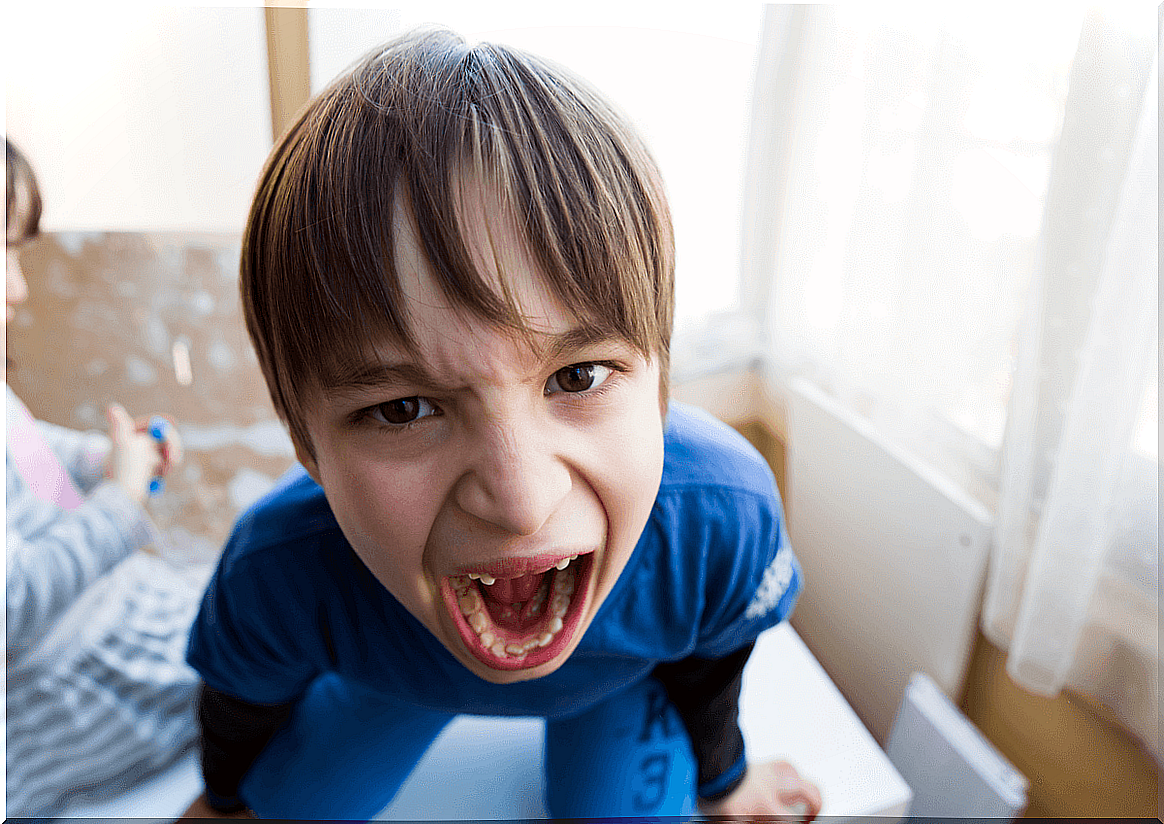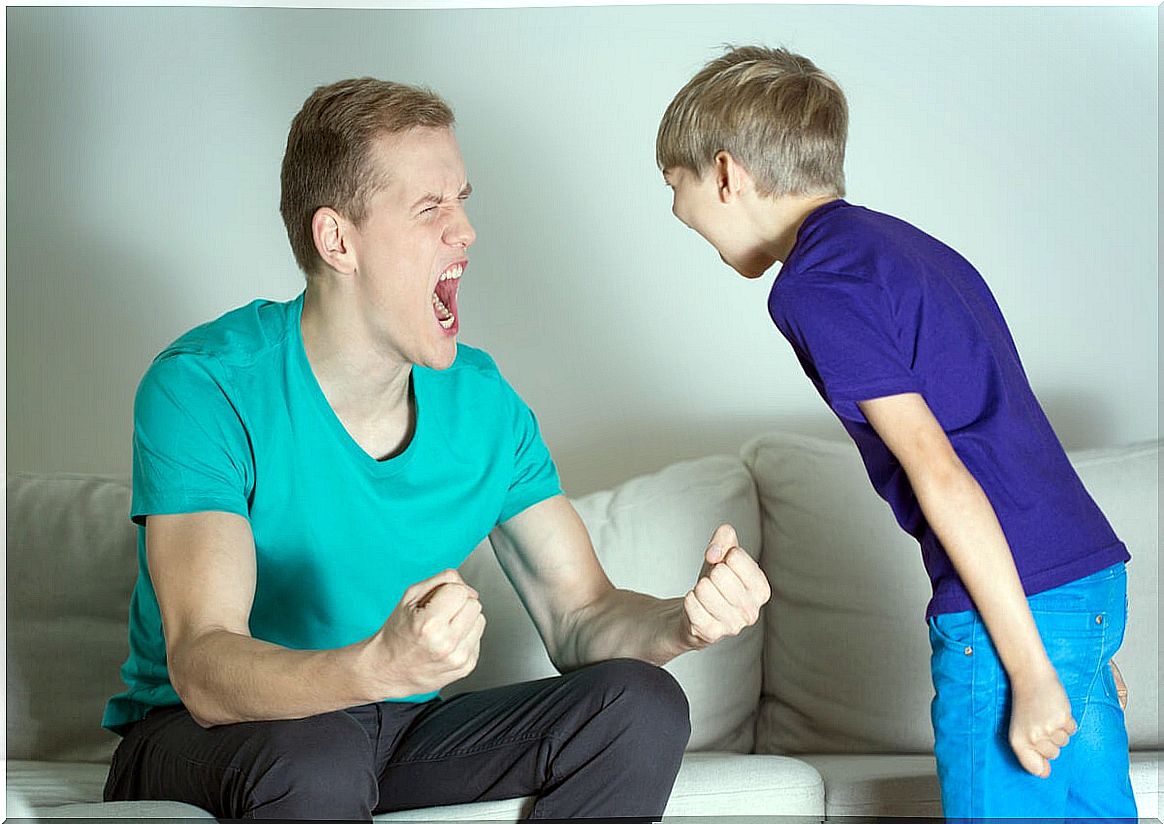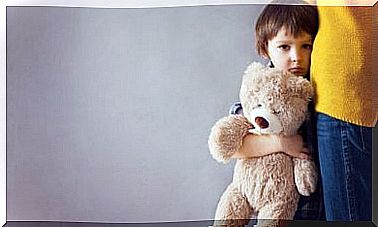How To Act When A Child Has Anger?

Anger is one of the most difficult emotions to manage, both in oneself and in others. This leads, for example, to many adults not knowing how to act when a child is angry. Usually they respond with more anger, or go to the other extreme and feel intimidated into doing something.
Neither extreme represents an appropriate way to act when a child is angry. The central objective should not be to appease the feeling or suppress it, but to teach him how best to manage that emotion, so that he does not harm others or himself.
Although it is more difficult with younger children, it is also true that the earlier this emotional upbringing begins, the healthier the child’s psychological development will be. In this way, the explosions and tantrums will be less and less. So how do you act when a child is angry? Let’s see.

Children’s age: a deciding factor
It is not the same to address the anger of a 2-year-old child, than that of a 7 or 14-year-old. In theory, though not always in practice, the smaller you are, the less control you have over your emotions. This is because at an early age, children do not identify emotions well, nor do they fully understand them. Although, it is also true that, the bigger they are, the more anger can be rooted.
Ideally, the child should learn to deal with his anger from a very young age. It will not be achieved from one moment to the next, but if a solid foundation is built, the child will develop the necessary tools to manage what he feels in the most constructive way possible. This, of course, does not mean that you will always succeed, but it will be exceptional if you do not.
With teenagers, who are very prone to irritability, the attitude should be a little more passive. This is an age that deserves flexibility and breadth, as long as the limits of reasonableness are not crossed. With the adult, rather than instilling in him, the boundaries of respect must be clearly defined.
How NOT to act when a child is angry
Let’s start by identifying what NOT to do when a child is angry. In the first instance, and regardless of age, it is not appropriate to respond with the same or greater anger. This breaks the limits of the father’s authority and turns a filial conflict into a problem between equals. It is taught, instilled, and authority gained by example.
Neither, and again regardless of age, is it good to adopt an attitude of pity. In front is a person invaded by a destructive feeling, so a mime is not the most appropriate response, since it is practically equivalent to a prize. The objective is to bring the situation to the realm of reason.
Finally, a response should not be rushed, regardless of the form of expression of anger. Starting to comment, judge or try to explain what is happening is not good in the first instance. That can even be assumed as an offense and it is possible that it is, to the extent that we speak of an alien subjectivity, even that of our son.
What is to be done

In all cases, the way to act when a child is angry begins by reassuring us. This is also learned and little by little it becomes easier to press the button and hold back before acting. If you definitely feel that you are also going to explode at that moment, it is best to ask for time: “son, at this moment I am not in a position to talk to you.”
In any case, in the beginning it is important not to act, not to speak and rather to listen to what the boy has to say. That silence and inaction will help you calm down ; Even if he yells or offends, the father’s or mother’s impatience sends him a message: they are not vulnerable to the situation and by way of aggressiveness they will not achieve anything.
When I am calmer, it is time to ask strategic questions : “What is bothering you?”, “Why don’t you explain to me in detail what you want to see if I can help you?” If he does not calm down, tell him that in those circumstances it is impossible to talk and that they can take up the matter when he feels better.
Do not forget that emotions are educated and that a good part of parenting consists of precisely that. For a child to learn to manage anger, what must be done is to help him find ways to calm down and try to understand what he is feeling, also helping him to understand it. It is one of the great gifts that can be given to children.









